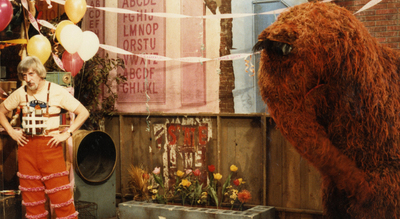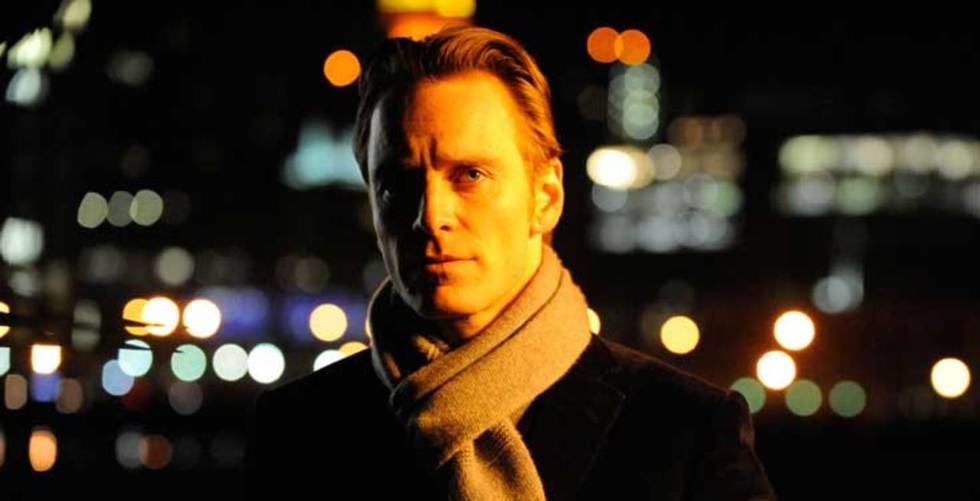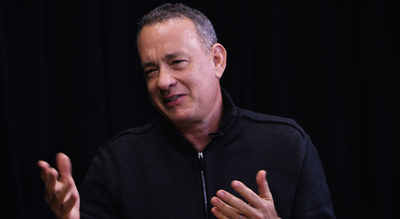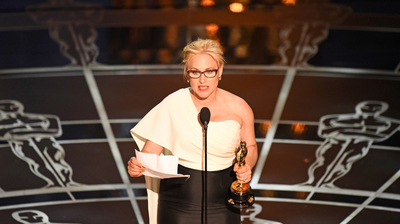
BY KAREN KEMMERLE |
Oscar Woulda Shoulda Coulda: The Men
This week we honor 10 iconic male performances that never reached the starting line in the Academy Awards race.

In the movie business, 2012 is coming to be known as “the year of the Oscar snubs.” Outstanding films like Shame, Tinker Tailor Soldier Spy and Bridesmaids were ignored in the Best Motion Picture category. Likewise, a number of exceptional performances went unrecognized when the nominations for Best Actor and Best Actress were announced. These omissions frustrated critics and fans who believed that actors such as Michael Shannon (in Take Shelter), Woody Harrelson (in Rampart), Tilda Swinton (in We Need To Talk About Kevin), and Elizabeth Olsen (in Martha Marcy May Marlene) deserved better from the Academy.

In fact, these laments are nothing new. The list of movie greats who, despite nominations, never won an Academy Award (Harvey Keitel, Cary Grant, Gena Rowlands, Deborah Kerr) is long and depressing, and 2012 is not the only year when many noteworthy actors and performances did not get the chance to compete in the Oscar race.
In a two-part series, we have decided to recognize some particularly fine performances that were ignored by the Academy but should by no means slide into movie oblivion. Last week, we recognized ten very special performances by some fine actresses. This week, it’s the men’s turn.
Michael Fassbender in Shame (2011)
How are you helping me? Huh? Look at me. You come in here and you're a weight on me. Do you understand me? You're a burden. You're just dragging me down. You can't even clean up after yourself. Stop playing the victim.
It is difficult to believe that Shame was not nominated for a single Academy Award. It is even more difficult to believe that Michael Fassbender was snubbed for his riveting performance as Brandon Sullivan, a man struggling with sex addiction. Brandon lives a double life—during the day, he is a cool and successful businessman (what kind of business is unimportant), but after hours, he is an unemotional sex addict. The camera loves Fassbender: lingering on his cold muscular torso, catching every furrow in his brow, and returning again and again to his penetrating eyes. Fassbender is particularly effective in conveying the inner turmoil that Brandon experiences when the monotony of his empty life is disrupted by the appearance of his troubled younger sister, Sissy (a luminous Carey Mulligan), who is exactly his opposite, living loudly to the extremes. Her self-destructive tendencies inspire Brandon to attempt a normal relationship, but he soon spirals out of control, perhaps irretrievably (though the ending of the film is ambiguous). A great performance is one that stays with you long after the film is over, and Fassbender achieved that with Shame.
Vincent D’Onofrio in Full Metal Jacket (1987)
Sir, the private's weapon's name is Charlene, sir!
Character actor extraordinaire Vincent D’Onofrio famously gained 70 pounds for his role as Private Pyle in Stanley Kubrick’s Full Metal Jacket. In a star-making performance, D’Onofrio transforms himself into a flabby oddball who is drafted and sent to boot camp in preparation for a tour in Viet Nam. In boot camp, he becomes the target of Gunnery Sergeant Hartman’s (R.Lee Ermey) aggression and ridicule. Hartman berates and belittles Pyle in front of his peers for being out of shape, uneducated and naïve. Pyle perseveres, aided by the sympathetic Private Joker (Matthew Modine) and partially redeemed by his surprising skill as a marksman. D’Onofrio manages to convey Pyle’s strange combination of determination and fragility, so the audience is prepared when Pyle unravels after he is caught stealing a jelly donut, which results in punishment for his entire squad. The look of shock and pain on D’Onofrio’s face as his friends retaliate with a “sock party” beating is excruciating for the audience. Even more horrifying is D’Onofrio’s stark portrayal of Pyle’s subsequent madness and suicide. D’Onofrio has worked steadily in film and television since Full Metal Jacket, but Private Pyle remains his most fully-realized character.
Matt Dillon in Drugstore Cowboy (1989)
Most people don't know how they're going to feel from one moment to the next. But a dope fiend has a pretty good idea. All you have to do is look at the labels on the little bottles.
Gus Van Sant works well with young actors who are still developing their talents, as his direction of Matt Dillon as Bob in Drugstore Cowboy demonstrates. The film starts with the bloodied Dillon in the back of an ambulance, looking back at his life. In a haunting, pragmatic voice-over, Bob narrates the events that led up to his current predicament. Dillon’s Bob is a fascinating character: he is smart and crafty, as an addict has to be, and, while he loves his wife (Kelly Lynch), he loves drugs more. When one of their cohorts dies of a drug overdose, Bob undergoes the gradual realization, skillfully conveyed by Dillon, that his current lifestyle is a dead end. Bob sadly understands that his friends will continue with their restless and self-destructive lifestyle despite his defection, and Dillon shines in this portrayal of a drug addict desperately aware of his situation and straining for change. Though his role in Drugstore Cowboy seemed to signal that Dillon was ready to be taken seriously as an actor, he worked under the radar for many years. Recently, however, he was nominated for an Oscar for his stellar work in Crash, and he continues to tackle different and challenging roles.
Wes Studi in Last of the Mohicans (1992)
When the Grey Hair is dead, Magua will eat his heart. Before he dies, Magua will put his children under the knife, so the Grey Hair will know his seed is wiped out forever.
Wes Studi has one of the most memorable of cinematic faces. His pock-marked cheeks, piercing eyes and steely demeanor make him the perfect villain, though he can play a variety of roles. In Last of the Mohicans, Studi’s remarkable turn as Magua, the fierce Huron warrior consumed by hatred, makes this revenge drama set during the French and Indian War particularly compelling. Smudged with war paint and brandishing a tomahawk, Studi’s Magua is truly terrifying. Relentless in his pursuit of Cora and Alice, the innocent daughters of Colonel Monroe, he remains a mysterious and ominous enemy even after the audience understands the reasons for Magua’s hatred: Monroe’s men captured Magua and destroyed his family. Studi is particularly brilliant in the memorable scene in which Alice, who is now his captive, stands on a ledge, staring blankly at him. He motions to her to step to safety, but she chooses to fall to her death. Studi’s face registers shock, anger, and ultimately indifference as he shrugs and returns to his warriors. When Chingachgook mortally wounds Magua with a masterful stroke of his battle axe, Studi’s face again registers a range of emotions—surprise, horror, resignation. Wes Studi continues to be of the most celebrated Native American actors working today, but sadly, has never received proper accolades.
Edward Norton in 25th Hour (2002)
Champagne for my real friends, and real pain for my sham friends.
Edward Norton has been recognized by the Academy with two nominations for his work in Primal Fear and American History X, but his compelling performance as Monty Brogan in Spike Lee’s 25th Hour was equally deserving of recognition. Perhaps the wounds of 9/11 were still too fresh for this film to get proper acclaim, but we digress. Monty Brogan has only 24 hours before he must start a 7-year prison term for felony possession with intent to distribute, and the film follows Monty as he makes amends and settles scores. Though he blames others for his arrest, the person he is angriest with is himself. Norton is brilliant as Monty, giving a remarkably concentrated performance. His silent suffering is punctured by moments of angry explosion, most notably the famous bathroom monologue scene in which he comes to terms with his fears. Spike Lee is a gifted director of actors, pulling career-best performances from talents like Denzel Washington, Danny Aiello and certainly Norton. As for Edward Norton and Oscar glory, it is simply a question of “when.”
Robert Mitchum in Night of the Hunter (1955)
Salvation is a last-minute business, boy.
Nominated just once for the forgettable Story of G.I Joe, Robert Mitchum was famously ignored by Oscar despite numerous memorable performances in celebrated films over the course of his long career. In the underrated classic Night of the Hunter, Mitchum gave one of his best performances as the eerie and menacing Reverend Harry Powell, one of the most infamous villains in cinema. Mitchum’s Powell is a charming psychopath who operates under the guise of a religious fanaticism. Mitchum smoothly integrates himself into the lives of a condemned man’s family so that he can find a hidden treasure. His Powell is relentless and implacable in his pursuit of the children who know where the money is hidden. The only counter to his malignity is Rachel Cooper, the elderly woman who protects the children. Mitchum’s silky tones contradict his malignancy as he stalks his prey, his sleepy eyes alive with rage. The understated menace of his performance has influenced dozens of films since then, but sadly earned him no recognition at the time.
Laurence Fishburne in Boyz n the Hood (1991)
Rick, it's the Nineties. Can't afford to be afraid of our own people anymore, man.
John Singleton’s Boyz n the Hood was a cultural phenomenon when it was released in 1991. The film follows a group of young men coming of age in the gangland of south central Los Angeles. While actors like Cuba Gooding Jr., Morris Chesnut and Ice Cube give moving performance as the young men, it is Laurence Fishburne who stands out. He plays Furious Styles (give me a better cinematic name, I dare you) the father of Tre (Gooding Jr.) who has seen the life that his son could potentially fall into. Furious is a Vietnam veteran who is determined to be a good man and a good father. Singleton uses Fishburne’s Furious as a mouthpiece for his personal commentary on manhood and the senseless nature of life in the ghetto, but Furious is not a cardboard character. As Fishburne’s portrayal reveals, Furious is a complex man. In one memorable scene, a burglar breaks into the family’s home while they are sleeping, and the typically peaceful Furious bursts into action and grabs his long unused gun. After Furious shoots and misses, he stares at the gun as if it were a symbol to his old life, his fresh anger fading into a sense of relief. Fishburne’s face reflects the devastation Furious experiences as he realizes that no matter how much wisdom and advice he passes on to his son, the boy will not be able to escape his environment. Laurence Fishburne continues to have a versatile career, but sadly no golden statues have come his way.
Tim Curry in The Rocky Horror Picture Show (1975)
It's not easy having a good time! Even smiling makes my face ache!
The Rocky Horror Picture Show is a cult favorite that has achieved infamy through perpetual ritual midnight showings. Featuring an explosive soundtrack,a zany script and fantastic characters, the film’s success is in large part due to Tim Curry’s sexually ambiguous role as Dr. Frank-N-Furter. A cross-dressing scientist who turns out to be an alien transvestite from the planet Transylvania, Dr. Frank-N-Furter embodies the idea of sexual freedom and experimentation. It is difficult to imagine anyone but Tim Curry in this role. Young and virile, Curry oozes sex appeal, playfully lingering on every double entendre in the suggestive lyrics with his Cheshire cat grin. Curry’s Dr. Frank is so over the top that he is condemned by his fellow Transylvanians for being “too extreme,” and Curry as Frank enjoys every moment of this excess. With midnight screenings still as prevalent after more than 30 years, Tim Curry’s performance as Dr. Frank-N-Furter continues to be appreciated by audiences despite his Oscar snub.
Bill Murray in Groundhog Day (1993)
I was in the Virgin Islands once. I met a girl. We ate lobster, drank piña coladas. At sunset, we made love like sea otters. That was a pretty good day. Why couldn't I get that day over, and over, and over?
Bill Murray is one of our great modern comedians, so why hasn’t the Academy taken notice? He was nominated for an Oscar in 2003 for his dramatic role in Lost in Translation, but his comedic work in films like Ghostbusters, Stripes and Rushmore has been ignored. In Groundhog Day, one of the funniest movies of the 90s, Bill Murray gives what is perhaps his most Oscar-worthy performance as Phil Connors, a cantankerous weatherman who is forced to cover Groundhog day in Punxsutawney, along with his producer, Rita (Andie MacDowell). Murray is at his best as he doles out the insults with his trademark deadpan delivery and rails against this hated assignment. Fate intervenes and he is forced to relive Groundhog Day over and over again. Murray is hilarious as the desperate Phil, who runs the gamut of emotions: from shock to glee to melancholy to mischievousness to despair. Murray’s nuanced performance makes Phil’s ultimate redemption believable, and Groundhog Day works as a film only because of Murray’s ability to riff endlessly on a single day. When Bill Murray finally gets an Oscar, we hope it will be in a comedic role. Wes Anderson, there is still time!
Jeff Bridges in Fearless (1993)
Now close your eyes... everything is wonderful.
There is no word that can better describe Jeff Bridges’ performance in Fearless than perfection. Bridges plays Max Klein, a survivor of a plane crash who believes himself to be invincible. Unlike the other passengers who lived, Klein does not want to talk to a therapist or counselor, nor is he interested in the class action lawsuit being prepared by a team of lawyers. Bridges’ Klein isolates himself from those closest to him, choosing to defy death by crossing busy intersections and walking on the ledges of buildings (in a particular riveting sequence). Bridges’ performance is incredibly subtle. Klein is a man who is in a spiritual crisis, who no longer considers himself among the living. Bridges’ Klein is complex and even unsympathetic at times, but his essential humanity leads him to try to help Carla (an Oscar nominated Rosie Perez), a fellow passenger who lost her baby in the crash. Jeff Bridges is now enjoying an career resurgence and finally snagged his Oscar (for Crazy Heart) two years ago. It was a long time coming.
What performances have we overlooked? Tell us in the comments below.

